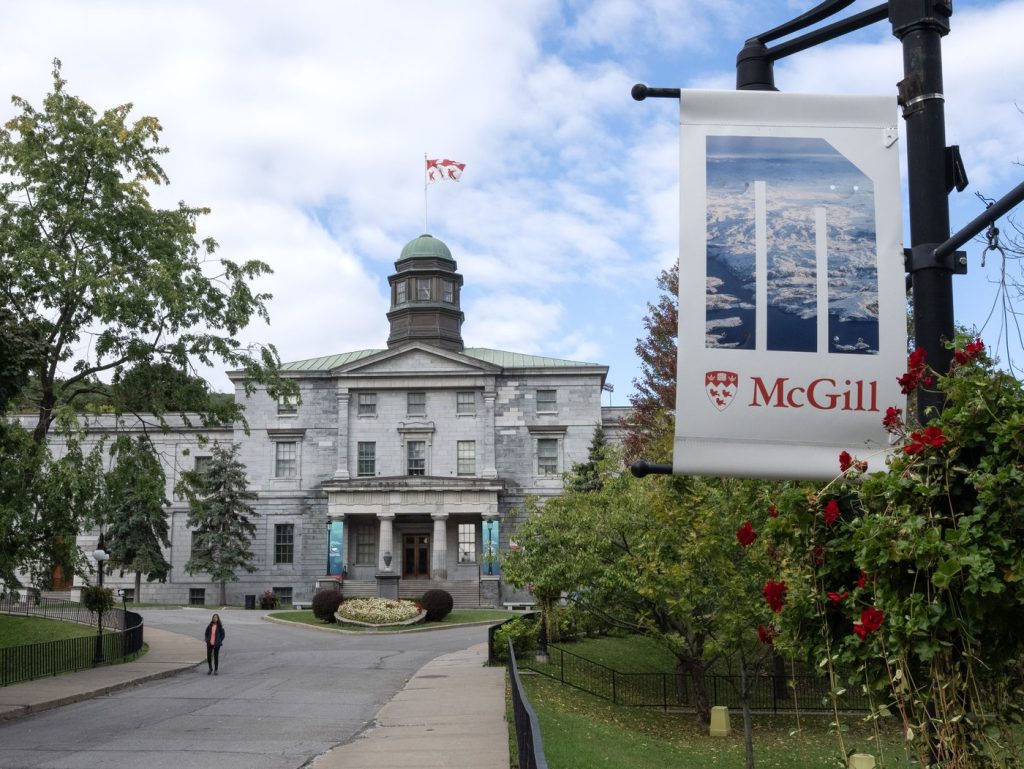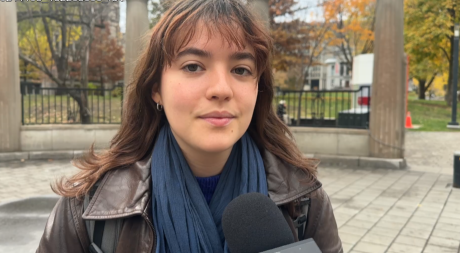Foreign student cap: Quebec universities and CEGEPs want to be excluded

Posted November 5, 2024 12:56 pm.
Last Updated November 5, 2024 5:54 pm.
As consultations begin on Bill 74, which aims to limit the number of foreign students in Quebec, universities and CEGEPs are making their voices heard and asking to be excluded from the cap altogether.
“We are not responsible for the enormous increase in international students,” said McGill University President Deep Saini at a parliamentary commission at the National Assembly Tuesday.
In a joint submission, Université Laval, Université de Montréal, McGill University and Université de Sherbrooke state that “international university students represent a small percentage of temporary immigration to Quebec. However, their contribution is crucial in a number of ways.”
#WATCH: As consultations begin on Bill 74, which aims to limit the number of foreign students in Quebec, universities and CEGEPs are making their voices heard and asking to be excluded from the cap altogether.
— CityNews Montreal (@CityNewsMTL) November 5, 2024
READ: https://t.co/Bj1tcOieS6 pic.twitter.com/xLFURN3osD
The government says 24 per cent of non-permanent residents are foreign students. There are currently about 124,000 foreign students in Quebec — a number that has increased by 140 per cent from 2014 to 2023.
“We’re at an increase of 59 per cent over 10 years,” said Université de Sherbrooke rector, Pierre Cossette. “We are very far from the 140 per cent.”
“This is a growth that is reasonable, that was strongly encouraged by the Quebec government until recently,” he added.
The Université du Québec is also calling for universities to be excluded from the cap.
“A precise intervention based on the proposed parameters would run the risk of undermining the management capacity of universities and university autonomy in the broadest sense, particularly with regard to research and creation, as well as the development of programmes and the conditions that students must meet in order to have access to them,” it states in a brief.
The Fédération des cégeps is also calling for the institutions it represents to be exempted “from any cap reducing the number of international students and to be assured of being able to pursue their mission of accessibility and contribution to the community.”
The federation says it is “very concerned about the possible centralisation of decision-making power.”
Despite the outcry, Quebec Immigration Minister Jean-François Roberge said it would not be “reasonable” to exclude CEGEPs and universities from his bill.
“I think they (the CEGEPs and universities) understand very well that we have to select the most promising programs. Saying that we want to attract foreign students, especially French-speaking ones, remains a forward-looking policy for the Quebec government and the Quebec nation. Are all programs of equal value when it comes to labour shortages? Are all the programs really helping us as a nation to develop our economy in the same way?
“It’s not right that migration policy, when it comes to foreign students, should be in the hands of 20, 40, 70 institutions, all independent. We need a conductor,” added the minister.
A few weeks ago, Roberge tabled a bill aimed at limiting the number of foreign students in Quebec.
The bill also provides for the distribution of foreign students according to a number of criteria, including region, level of education, institution and programme.
The schools say the bill, which also provides for the distribution of foreign students based on region, institution and program of study, would hurt their ability to attract top talent from around the world.
Premier Francois Legault had previously said private colleges were “abusing the system” and charging tens of thousands of dollars to those hoping for permanent residency.
“I do think a massive influx of international students are going to these incredibly expensive schools without the same academic objectives as a school like McGill,” said said McGill University international student from Costa Rica, Sofia Andrade. “I understand why you might target that segment, however, they are such a small representation.”
Andrade says the legislation is a misstep.
“I feel like the education I was able to obtain here isn’t equivalent to what I would have been able to get back home, and I feel very lucky to have had this opportunity,” said Andrade.
“It’s very frustrating that other people won’t be able to access those same resources, especially when there’s incredibly qualified international students abroad who really want to study in a city like Montreal.”

“We are not part of the abuse, the way things have been done up until now has been very beneficial for Quebec,” said Cossette. “We do not see why they would include universities.”
“Through their presence, they enable our master’s and doctoral programmes to meet the need for highly qualified workers and to develop Quebec’s capacity for innovation,” they wrote in their brief.
“We share the government’s objectives of protecting the French language, selecting international students on the basis of rigorous criteria, and cracking down on institutions that do not comply with the rules. However, we are of the opinion that, in its efforts to achieve this objective, the government is erring by choosing to penalise universities and by risking considerably weakening Quebec’s attractiveness to international students,” we continue.
Roberge says it’s not reasonable to think they can cut the numbers without including universities and colleges. The government wants its bill to be passed before Christmas so that it can start taking action as early as Sept. 2025.








